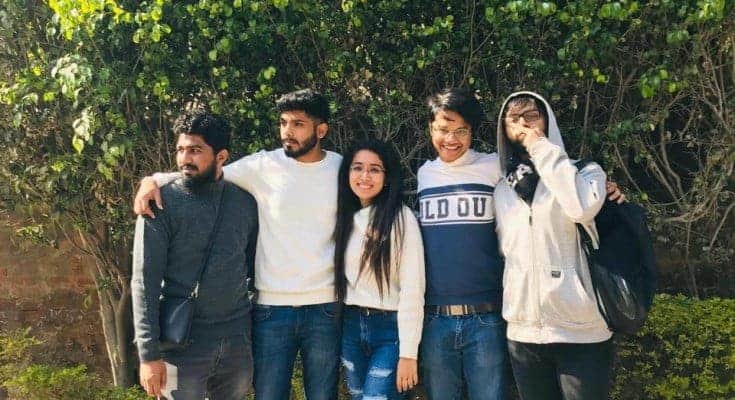Read the words of our Editor-in-Chief for one last time, before she graduates, as she complains about her stolen sixth semester.
I remember last year, around this time, I was preparing for the farewell ceremony for my seniors at DU Beat- my phone would blow up with some 250 random messages on WhatsApp, endless calls discussing the venue, theme, gifts, and what not. At that time, I didn’t actually understand what the final semester meant to my seniors because I was too engrossed thinking about how life and work would be without them being around. But I also had the settling feeling that I would know when time comes.
Cut to 2020, the last semester of my college life as an undergraduate student, sitting at home, writing this article, and thinking about where my last semester went. I think of the stuff I would have been doing with my college friends and my team at this wonderful organisation.
However, I have always believed ‘expect the unexpected’ and I think that this is the only thing that is keeping me sane in such uncertain times. As kids, most of us might have experienced an unsettling feeling when somebody would snatch out a lollipop from our mouth. This is exactly what happened to our final semester.
Having said this, I would not talk only about the sad situation we are in. As a graduating student, a host of memories flash in front of me right now- the day I got admitted to the University of Delhi(DU), the day I met my college best friend, and the day I joined this organisation.
The three years of my college life have been the most challenging, yet the best years of my life. From being a student coming out of the protected cocoon of school life to graduating college with confidence and an identity, this is what these three years have made me. As college students, we are stuck with assignments, internals, submissions, deadlines, placements, societies, and endless preoccupations.
The nationwide lockdown gave me enough time to introspect and surprisingly, all that mattered to me during this difficult time were the people. I realised that my college life was not only defined by a degree or my friends, but also the security guard of my college who would wish ‘Good morning bacchon’ every morning, the canteen staff who would talk about their families, and the housekeeping staff of the college who would smile and wish me luck before every exam.
I wish I could get to relive all this one last time because I didn’t know that the chai I had on 6th March in my college canteen was the last cup I would have with my college friends while Ravi bhaiya (college canteen staff) talked about his Holi plans. You know something impacts you a great deal when you are unable to write about it without being cheesy and clichéd. It’s a faux-pas I’m willing to indulge in for the sake of honesty.
As much as I have talked about the final year students, I would also like to talk about the juniors. They are also the ones who hope to give their seniors the most memorable days of their college life. The end semester is also a reminder that they have become older, and are now themselves seniors. It’s a nostalgic time for the third-year students but what we often forget is how overwhelming it is for the juniors as well.
Dear Delhi University, the batch of 2020 will miss their last fest season, internals, college parties, night stays, bunks, submissions, and the last lectures and yes, they will miss you too- a place which gave them friendships, lessons, and lots of memories.
Feature Image Source: Anoushka Sharma for DU Beat
Anoushka Sharma


